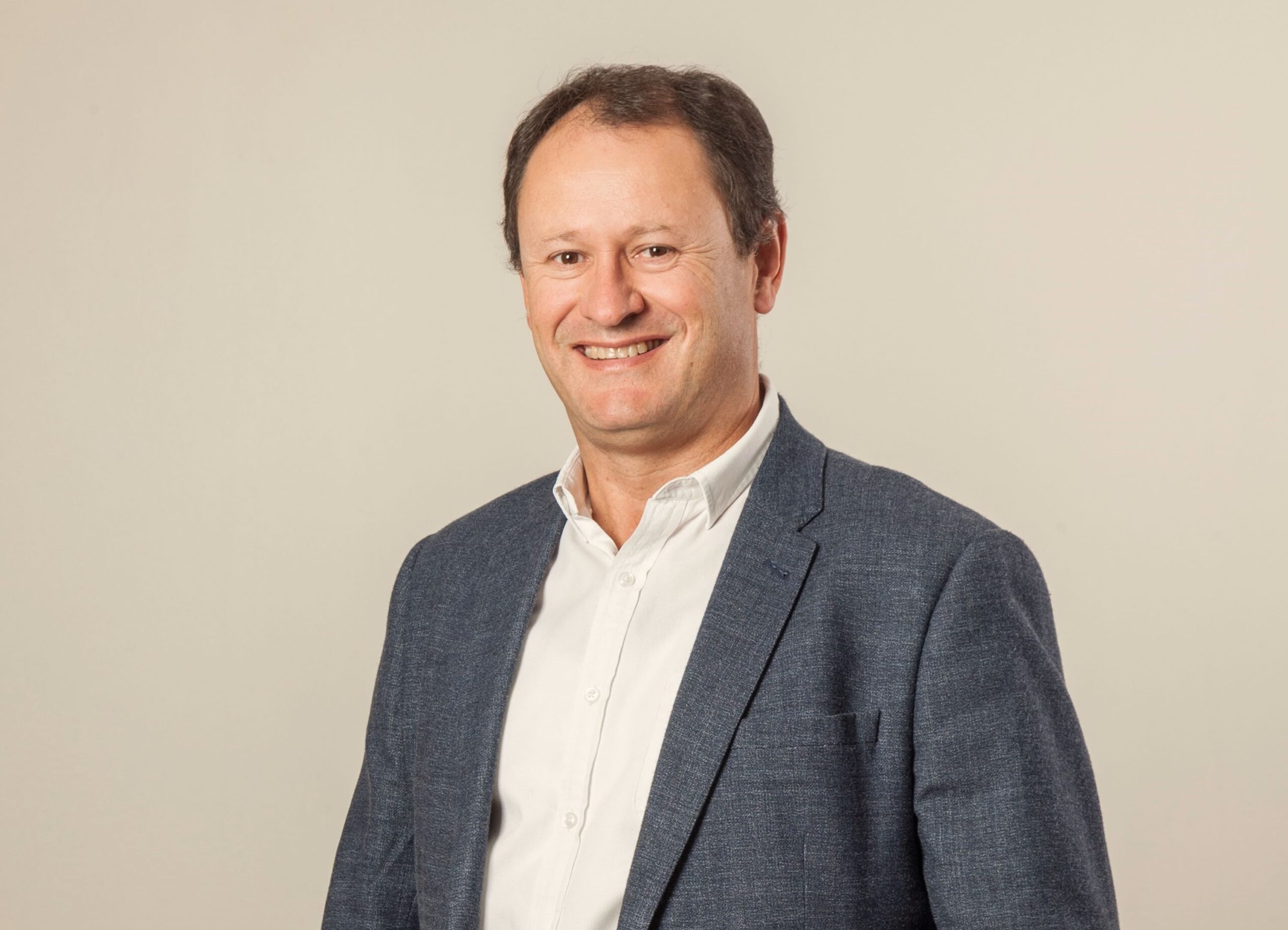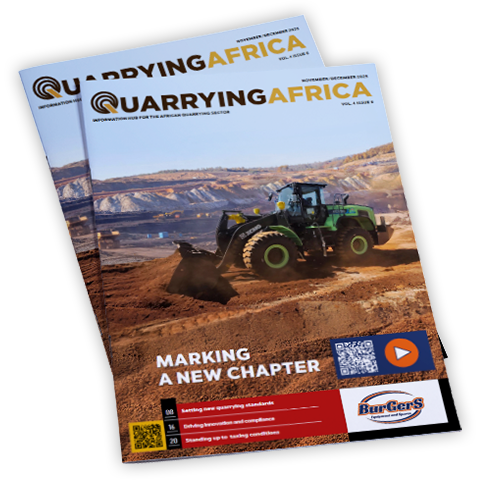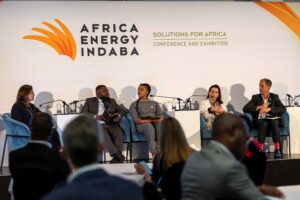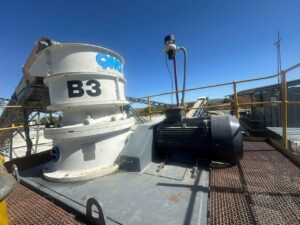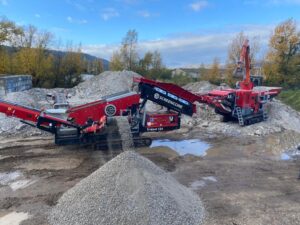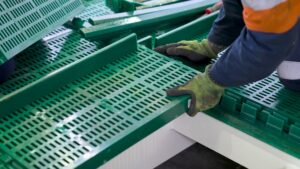Afrimat has released a strong set of results for the year ended 29 February 2024. Group CEO, Andries van Heerden, says that during the first half of the financial year, Afrimat invested substantially in projects expected to yield fruitful returns and further strengthen diversity and competitive advantage in the future. One such project was the Nkomati Anthracite Mine (Nkomati), which delivered a healthy return at year end.
Diversification and efficiency improvement initiatives remain the cornerstone of the Group’s strategy. These counter economic impacts that are beyond management’s control.
Financial results
Van Heerden states that he was exceptionally pleased with the group’s performance, which was supported by a revenue increase of 23,9% from R4,9-billion to R6,1-billion. Operating profit increased by 19,8% to total R1,2-billion (2023: R961,6-million), delivering an operating profit margin for the group of 18,9%.
“The diversified position Afrimat has adopted, together with the efficiency projects that are in place, helped the Group to counter impactful economic headwinds. Headline earnings per share strengthened by 24,0% to 567,3 cents from 457,6 cents.”
Afrimat continues to focus strongly on cash generation and preservation. The Group’s balance sheet remains strong, with cash and cash equivalents at the end of the year of R504,7-million, an improvement of 80,7% on the previous year. Net cash from operating activities of R1,2-billion was generated.
The debt:equity position remains exceptionally strong at 1,4% compared to 4,5% in 2023. It is expected that this ratio will increase as the Lafarge integration takes place. Afrimat will simultaneously ensure that cash generation is robust, allowing the Group to quickly pay back debt.
The board declared a final dividend of 154,0 cents per share (2023: 110,0 cents per share), in line with the Group’s dividend policy of 2,75 times cover. The total dividend (interim and final) for the year amounts to 194,0 cents per share (2023: 150,0 cents per share).
Operational review
The Bulk Commodities segment, which comprises the iron ore mines and an anthracite mine, contributed 83,1% to the Group’s operating profit. This segment benefited from the stellar performance of Nkomati, which recovered strongly in the second half of the year, delivering healthy market volumes. The quality of the anthracite produced by Nkomati is highly sought after in the local market as a substitute for imports. In the year under review, Nkomati contributed 14,6% of the Group’s operating profit. Investment in the mine has enabled the first extraction of anthracite from the underground mine and the establishment of two additional opencast pits, which ensure consistent feed to the plant. The second half of the year delivered an increase in processing volumes, and the plant is progressing well toward reaching steady-state volumes.
The traditional dip in the iron ore price in the last quarter of the year did impact the overall results, but despite this, a favourable Rand/US$ exchange rate and operational efficiencies assisted in offsetting this.
The iron ore mines recorded an overall increase of 24,3% in iron ore sales volumes compared to the previous year, with local sales tonnages increasing from 502 404 to 882 168 and international sales tonnages decreasing from 778 072 to 709 709. The slowdown in export volumes was due to limitations on the export rail line. Challenges on the domestic rail line were successfully countered by trucking products from the mine, with the Group able to supply additional volumes of iron ore into the domestic market as a result.
The segment continues to generate a strong operating profit margin of 32,4%, in line with the previous year of 31,8%. Iron ore exports have continued to generate strong cash flow for the Group.
The Industrial Minerals businesses, which account for roughly 1,2% of the Group’s operating profit, delivered a disappointing result, with revenue and operating profit decreasing to R554,5 million and R13,8 million, respectively. Diesel generators that have been installed to keep operations in production have been successful in mitigating the effects of loadshedding, but the overall impact of power cuts on the segment’s clients and respective industries is being felt in terms of reduced demand.
The Construction Materials segment experienced a 22,3% increase in revenue from R1,8 billion to R2,2 billion and an improvement in operating profit of 111,0% to R273,5 million compared to the previous year of R129,6 million. The uplift in revenue was the result of increased demand from road and rail industries, while the improvement in operating profit was further driven by successful efficiency improvement programmes.
The Future Materials and Metals segment supports the Group’s diversification strategy. Glenover is the segment’s first project, and it expands Afrimat’s exposure beyond only ferrous metals. It also aligns the Group with global trends such as the advancement of technology for decarbonisation (through rare earth minerals) and food security (through fertilizer products).
Glenover is a greenfield project that started producing its first products during the year in order to be ready to take advantage of the upcoming agricultural season. Revenue improved in the second half of the year, with the project generating a total revenue of R31,3 million. Start-up losses were still incurred, however, with an operating loss of R12,9 million recognised at year end.
New projects: Lafarge integration
Van Heerden said that Afrimat is excited and ready for the Lafarge integration now that all the preceding conditions have been fulfilled.
“The acquisition will increase Afrimat’s offering in the construction materials space by expanding the Group’s quarry and ready-mix operations nationally. Additionally, access to the fly ash operations provides a foothold in the cement extender market. The grinding plant will allow Afrimat to grind materials as value-added products for our own operations as well as for our customers, while the cement kilns allow the Group to enter the cement value chain competitively.”
Afrimat entered into a share purchase agreement with a Holcim Group subsidiary, Caricement B.V., in which the Group will acquire 100,0% of the issued share capital of Lafarge South Africa Holdings Proprietary Limited. The acquisition has been structured as a locked box transaction, effective 31 December 2022, and the purchase consideration payable is in the amount of US$6-million. In addition to this, Afrimat agreed to repay or procure the repayment of the loan amounts owed equating to R900- million.
The purchase consideration of US$6-million and the first tranche of the loan amount of R500,0 million was paid on 17 April 2024. The remaining balance of R400-million is payable within twelve months after the closing date.
Afrimat took over operational management on 23 April 2024.
Outlook
Afrimat indicates that it will continue to fortify its diversified position to ensure sustainability and growth into the future. It now has different project maturation profiles, with the current focus being on implementation to ensure optimal value is achieved. Given this, the Group will remain cautious and prudent in all its capital allocation decisions.
“The anthracite mine is improving consistently towards steady state. Iron ore sales remain reliant on efficient logistics solutions and the Group is actively involved with industry initiatives to improve the export rail system. The domestic rail system remains a concern, although road transport has proven to be a viable, although more expensive, solution,” van Heerden said.
In the Future Materials and Metals segment, the Glenover project is a long-term investment. Commissioning of the Single Super Phosphate (SSP) plant has ensured that product is ready for the agricultural planting season and markets can now be broadened.
Van Heerden explains that the integration of the Lafarge transaction brings Afrimat full circle to its origins in quarrying, and the additional products, together with a broader national footprint, could positively alter the delivery capability of the Group and the Construction Materials segment. “This is an exciting project, which is expected to deliver good results in future,” he added.
Clients of the Industrial Minerals segment are finding the loadshedding schedule tough and it is hoped that a recovery to normal volume levels will soon be reached.
In conclusion, van Heerden reiterates that the operating environment in South Africa remains challenging, but Afrimat continues to see value in its diversification strategy. “Stringent capital allocation, efficiency improvement initiatives and a strongly diversified portfolio remain the cornerstone of the Group,” he says.
